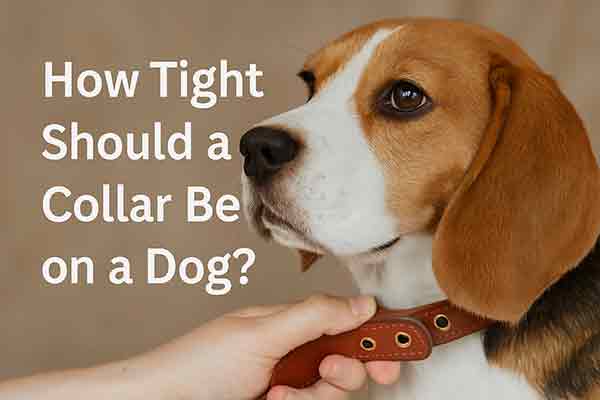Are Wiener Dogs Aggressive? | Understanding Dachshund Behavior
Table of Contents
- Introduction
- About Wiener Dogs (Dachshunds)
- Typical Temperament of Dachshunds
- Are Wiener Dogs Really Aggressive?
- Why Some Dachshunds Show Aggression
- Common Types of Aggression in Dachshunds
- How to Prevent Aggression in Wiener Dogs
- Training and Socialization Tips
- When to Seek Professional Help
- Conclusion
Introduction
The dachshund—also affectionately known as the wiener dog—is famous for its unique shape, curious personality, and big-dog attitude packed into a tiny frame. But if you’ve heard whispers about this breed’s temperament, you might be wondering: Are wiener dogs aggressive? In this article, we’ll explore dachshund behavior in-depth, uncover why they sometimes display aggression, and offer tips for raising a well-mannered and happy pup.
About Wiener Dogs (Dachshunds)
Dachshunds are a small hound breed originally bred in Germany to hunt badgers and other burrowing animals. Their long, low bodies were perfect for digging into tunnels, and their bold, persistent personalities made them fearless hunters. Today, dachshunds are popular companion pets known for being loyal, clever, and surprisingly protective.
Typical Temperament of Dachshunds
Wiener dogs are full of personality. They’re intelligent, playful, and independent, often forming strong bonds with their primary humans. However, their hunting heritage means they can also be:
- Stubborn or headstrong
- Territorial or possessive
- Alert and vocal (great watchdogs!)
- Protective of their owners
These traits aren’t inherently negative, but without proper training and socialization, they can develop into unwanted behaviors—including aggression.
Are Wiener Dogs Really Aggressive?
Yes and no. Like any breed, dachshunds have the potential to show aggressive tendencies, especially when untrained or insecure. In fact, a 2008 study published in the journal Applied Animal Behaviour Science ranked dachshunds among the most aggressive small dog breeds—particularly toward strangers and other dogs.
However, it’s important to remember that aggression is not a guaranteed trait. Most dachshunds are loving, cuddly, and well-behaved family pets when properly raised.
Why Some Dachshunds Show Aggression
Several factors can influence whether a dachshund becomes aggressive:
- Lack of early socialization: Puppies not exposed to other animals or people may grow up fearful and defensive.
- Improper handling: Dachshunds are sensitive to rough or overly assertive treatment.
- Pain or health problems: Dogs in discomfort may lash out unexpectedly.
- Possessiveness: Many dachshunds are food- or toy-guarders if not trained otherwise.
- Genetics: Poor breeding practices can result in temperament issues.
Common Types of Aggression in Dachshunds
Understanding the types of aggression helps in identifying and addressing the root cause. Dachshunds may show:
- Fear-based aggression: Growling or biting when scared or cornered.
- Territorial aggression: Barking or lunging at people approaching their space.
- Protective aggression: Defending their owners from perceived threats.
- Possessive aggression: Guarding toys, food, or favorite people.
- Predatory aggression: Chasing small animals or reacting to fast movement.
How to Prevent Aggression in Wiener Dogs
Preventing aggression starts with proactive care and training. Here’s how to raise a balanced dachshund:
- Start training early: Puppies are most receptive to learning between 8–16 weeks.
- Socialize frequently: Expose your dog to new environments, people, and animals from a young age.
- Use positive reinforcement: Reward good behavior instead of punishing bad behavior.
- Set boundaries: Teach basic commands like “sit,” “stay,” and “leave it.”
- Be consistent: Mixed signals can confuse your dog and encourage defiance.
Training and Socialization Tips
Here are a few practical tips for raising a sociable and friendly wiener dog:
- Enroll in a puppy training class
- Introduce new experiences slowly and positively
- Correct growling or snapping with calm redirection—not yelling
- Use treats and toys to reinforce calm, non-reactive behavior
- Keep encounters with other dogs structured and safe
With time, patience, and love, dachshunds can become incredibly loyal and affectionate companions.
When to Seek Professional Help
If your dachshund displays persistent aggressive behavior that doesn’t improve with training, consider seeking help from a:
- Certified dog trainer
- Veterinary behaviorist
- Veterinarian (to rule out pain or medical issues)
Professional guidance can make a big difference in understanding your dog’s needs and adjusting your approach effectively.
Conclusion
Are wiener dogs aggressive? While dachshunds may have a fiery streak and a tendency to protect what they love, aggression is not a defining trait of the breed. Most behavioral issues stem from poor socialization, fear, or confusion—not an inherently mean nature. With proper care, training, and patience, your dachshund can be a delightful, loving, and well-behaved member of your family.
Looking for more dachshund care tips and breed guides? Explore our blog for expert advice on training, behavior, and living your best life with your wiener dog.







